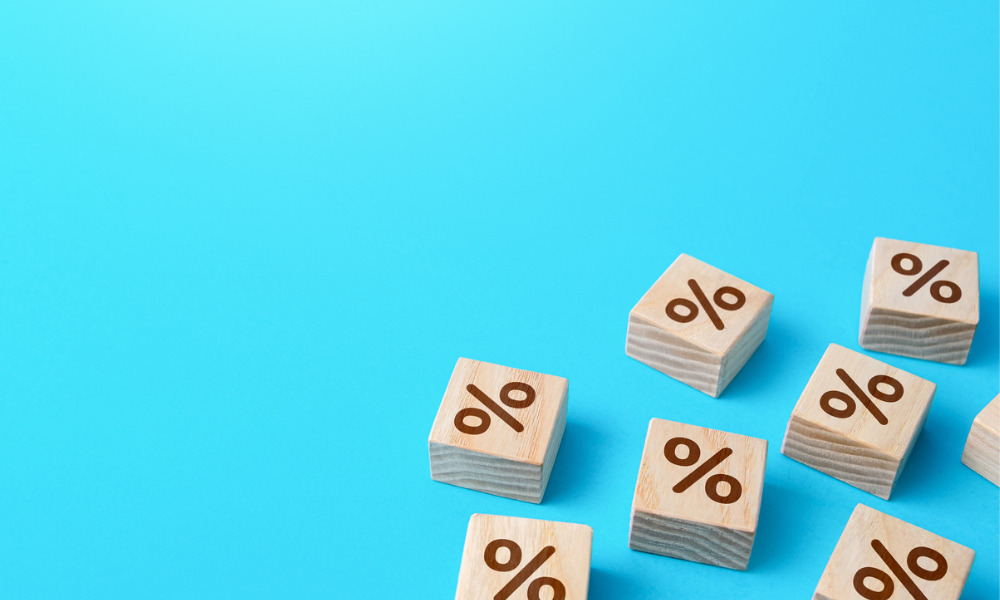CPI was hotter than expected, but what does that mean for investors?

A 4% rise in Canada’s Consumer Price Index in August compared to a year earlier (0.4% month-over month) exceeded expectations of economists.
But what does this reacceleration of inflation, from July’s 3.3% annualized rate, mean for investors and the Canadian economy, especially as the three-month rolling average of core inflation measures have risen significantly?
Wealth Professional has been collating the views of some of the industry’s top experts.
CPA Canada
CPA Canada’s chief economist David-Alexandre Brassard says there is “no cause for concern” due to the underlying cause of the higher CPI rate which is elevated gasoline prices. With energy costs removed, inflation was just 0.1% month-over-month.
“Service inflation has stabilized, and food prices went down for the first time in more than two years. Inflation must still come down, but there is little sign of generalized sustained inflationary pressure,” said Brassard. “This should reinforce the Bank of Canada’s recent decision to pause interest rate increases. Shelter-related costs have increased significantly and are showing no signs of stopping, which will put even more political pressure on housing.”
PIMCO Canada
Tiffany Wilding, managing director and economist at PIMCO Canada, says that the CPI data may prompt the Bank of Canada to consider further monetary policy tightening.
“Their preferred core inflation measures have not made meaningful progress this year and are now moving in the wrong direction, while wage inflation continues to remain robust even as the labour market loosens,” she said.
However, with a further CPI report and other data to come ahead of the BoC’s next rates decision on October 25 there is plenty more to inform their decision.
That said, Wilding believes that August’s inflation rise has sharply increased the chance of a rate hike at that meeting.
Franklin Templeton
One more rate hike may not be a major concern for the markets, as another one is already priced in, says Michael Greenberg, SVP, portfolio manager, Franklin Templeton Investment Solutions.
“Still, we think we are moving from a ‘how high’ to a ‘how long’ conversation with respect to interest rate policy. Parts of the economy are slowing while others are still robust such as the labour market,” commented Greenberg.
While there is no certainty of what the BoC may do next month, it could decide to wait longer to determine how the current rates are impacting growth and inflation.
“Today’s inflation data suggests the inflation genie is not yet back in the bottle,” concluded Greenberg.
Scotiabank
Derek Holt, VP and head of Capital Markets Economics at Scotiabank, has a different take, dismissing the view that rising inflation is down to mortgages and gasoline costs and that policymakers’ plan is working.
“All of which is complete, utter, rubbish,” says Holt.
Noting the high inflation in some key areas such as goods and shelter, he opines that “… if the BoC had to make a decision today, then I would say hike. A counter to this is to ride out the lagging effects which is an argument that I’ve never bought in this cycle, nor have I believed the narrative that inflation is transitory versus a multi-year structural issue.”
TD
At TD Economics, managing director and senior economist Leslie Preston says that the CPI report contrasts with some other economic metrics such as cooling new home construction and an increase in the unemployment rate.
“We expect further signs of slowing will help the Bank to continue to stand on the sidelines, as outlined in our recent forecast,” she said. “However, today's inflation report has raised the odds they may need to make another move.”
RBC
RBC Economics’ assistant chief economist Nathan Janzen says that, while there are signs of the economy slowing, the BoC is tasked with bringing inflation down to 2% and the CPI data is a step in the wrong direction.
“We expect the economic backdrop will continue to soften, and don't look for more interest rate hikes this year,” he said. “But the central bank won't hesitate to hike interest rates further if inflation pressures don't show signs of easing.”
CIBC
CIBC Capital Markets’ senior economist Andrew Grantham says that the likelihood is that inflation will continue to increase rather than decrease in the short term.
“If consumer spending remains sluggish and the unemployment rate continues to grind higher as we forecast, we still expect that the Bank will refrain from further interest rate hikes despite the strong current inflationary backdrop,” he concluded.
Find out how to invest in CIBC mutual funds in this article.



